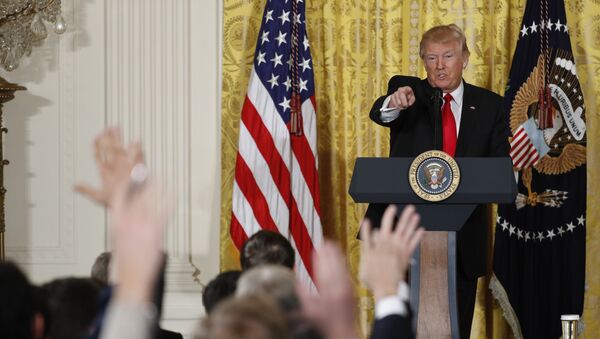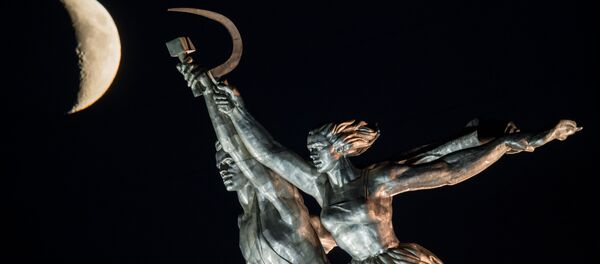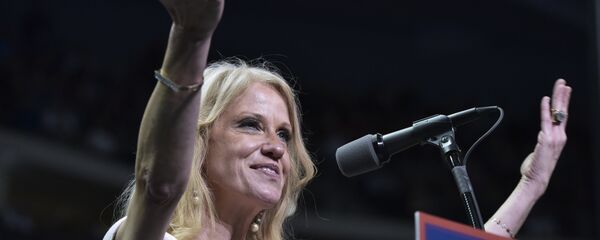On Monday, President Trump will mark the end of his second month in office, nearly four months after his election victory, unexpected by the vast majority of US media and pundits. Since his win, many of these same outlets and pundits seem to have made it their goal to discredit, defame and perhaps even depose him, publishing and airing story after story filled with unconfirmed, opinion-laden, combative material meant to degrade the president's credibility.
In his op-ed analysis about this ongoing Trump vs. media war, RIA Novosti contributor and US politics observer Dmitri Kosyrev suggested that Trump's election was seen by the mainstream media as "the largest disaster in the world history."
What's the essence of this catastrophe?, the journalist asked. "A disaster is when all the mainstream TV channels, newspapers and other media turned themselves into instruments for the bulk processing of the brains of US voters, telling them that Donald Trump was an ignominious fringe candidate who would never get elected. And then they got what they got."
Last week, a small conservative publication by the name The Daily Signal stirred up controversy after being invited into the press corps covering the White House and Vice President Mike Pence. The Washington Post, the powerful but dilapidated flagship of the US press, was outraged by the move, intimating that The Daily Signal was not "a legitimate news outlet," due to its preset ideological views, and arguing that unlike such smaller outlets, the mainstream media were "at least committed to factuality and truth."
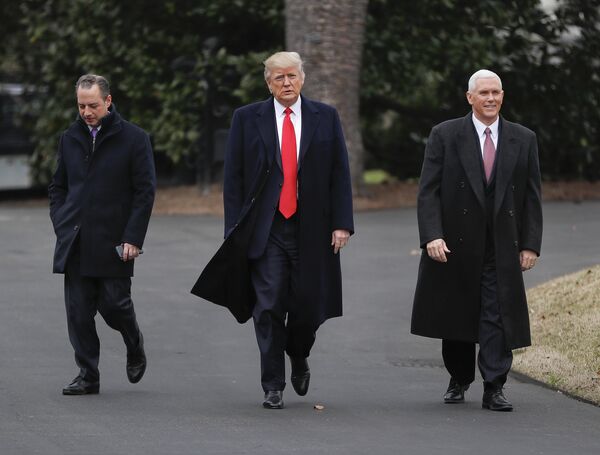
The polemic continued, Kosyrev noted, with The Daily Signal asking why it should not be considered "legitimate" while openly liberal, ideological and agenda-driven outlets like The Huffington Post are.
The Washington Post's response was revealing, Kosyrev stressed, in that instead of arguing directly with the other outlet, it "factually apologized to its audience for its 'failure' on November 8, and explained what caused it."
And this tendency to 'apologize' for Trump is taking place across the mainstream media, Kosyrev emphasized, often to a perverse and absurd manner.
"For example, the recent CNN film about Vladimir Putin ('The Most Powerful Man in the World') is a clear case of this kind of apology. 'Why did everything go wrong for us during the election?' CNN asked. 'It was this all powerful figure Putin, who really hates Hillary Clinton and decided to get even with her', the outlet answered. 'We [the media] did everything right – don't take offense with us.'"
"In other words, these once-respectable, Democratic-leaning publications simply betrayed me – tricked me as a reader. And they continue to do so, building up their dreary campaign against now President Trump. At the same time, they are trying to explain that they are the real and fair media – that they are striving toward the ideal, but being dragged backward."
The problem, Kosyrev stressed, is that the mainstream media has lost the plot of what their role actually is. "The ideal for journalism is this: not to lie (i.e. not to invent non-existent facts in the heat of ideological battles), and to separate fact-based journalism from opinion and commentary." Unfortunately, the analyst noted, modern-day America has demonstrated very well that in its purest form, this ideal seems to have become unattainable. A couple facts from the Washington Post-Daily Signal conflict demonstrate this.
"First, it's because that's the way they are taught at universities which the liberals have clenched. Secondly, as Margaret Sullivan lamented, those with conservative-leaning views who had previously worked in 'real' media gradually started to leave. From here, they set up this alternative, this 'isolated media system' of people with conservative views, factually establishing it in its current form."
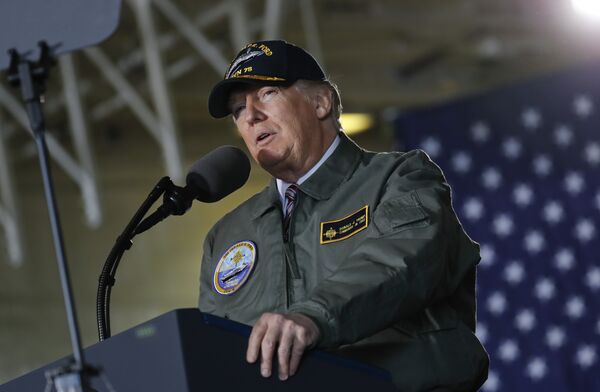
Until November 8, "this system seemed to be on the fringe – made up of some sites and blogs. After that, everyone came to understand that its power is equal to the so-called 'real' media." In the end, American society split into two, roughly equally strong sections, each with an equally strong media.
The key message from all this, according to Kosyrev, is that it's naïve to think that some external or internal force can even in principle turn all journalists into neutral 'human sponges of information' – who simply collect news and publish it. "Human beings are not neutral. They go into journalism to explain something to someone. They do this even when simply reporting on a fact, and find ways to deceive their overseers."
For that reason, Kosyrev suggested, "there isn't and cannot be such a thing as objective journalism; journalism is also promoting something. There are a million ways [to present opinion as fact]: the simplest among them is to only report those facts which fit into your predetermined idea, and validate it. The facts will be real, but the picture of the world that emerges for your audience will be false."
Accordingly, the journalist hinted, people should get into the habit of reading, listening to or watching news from a variety of sources, both liberal and conservative, if they want to get a more complete picture of what's really going on.

